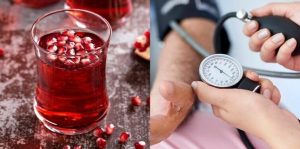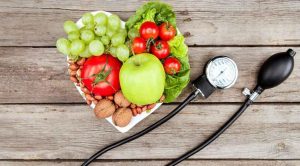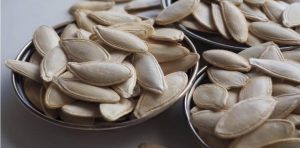High blood pressure, also called hypertension, is a condition that affects the blood vessels, which transport oxygen-rich blood throughout the human body.
If left untreated, high blood pressure can lead to serious health problems, such as heart attack and stroke [1, 2].
- Around a third of adults in the UK suffer from hypertension, according to the National Health Service.
- Nearly half of adults in the United States have high blood pressure, and this is according to the CDC.
Briefly stated, hypertension is a very common condition, affecting billions of people around the world [3, 4].
Many people with hypertension don’t know they have it because in most cases high blood pressure has no warning signs and symptoms. For this reason, the condition is also called the silent killer.
What is High Blood Pressure?
Blood pressure is the force of blood pushing against the walls of blood vessels (arteries). It is measured with 2 numbers:
- The systolic pressure (the higher number) is the pressure when the heart contracts.
- The diastolic pressure (the lower number) is the pressure between heartbeats.
They’re both measured in millimetres of mercury (mmHg).
Everyone’s blood pressure is slightly different. However, normal blood pressure is generally considered to be less than 120/80 mm Hg [1, 5, 6].
According to the American College of Cardiology/American Heart Association (2017) Guideline; the diagnosis of hypertension is made when blood pressure readings are consistently 130/80 mm Hg or higher.
Causes and Risk Factors
In most cases, the exact cause of hypertension is not clear. In some cases, certain health conditions can lead to hypertension disease, including:
- Obesity
- Type-2 diabetes
- Kidney Disease
- Obstructive sleep apnea
- Lupus
- Scleroderma
- Underactive or overactive thyroid
- Certain congenital conditions such as Cushing’s syndrome.
According to the Centers for Disease Control and Prevention: the following factors can increase the risk of developing high blood pressure:
- Eating a diet high in sodium, and low in fruit and vegetables
- Not being physically active
- Being overweight or obese
- Drinking too much alcohol
- Smoking
- Sleep problems
- Having a family member with hypertension
- Being black African or black Caribbean
- Age (blood pressure tends to rise as you get older)
Symptoms
In most cases, high blood pressure has no warning signs or symptoms. Therefore, many people live their lives without knowing that they have the condition. Owing to this feature of hypertension, it is also called a “silent killer“.
World Health Organization notes that the most reliable way to detect hypertension is to have a health professional measure blood pressure.
As per the British Heart Foundation, a few people with hypertension may experience the following signs or symptoms:
- Blurred vision
- Nosebleeds
- Shortness of breath
- Chest pain
- Dizziness
- Headaches
Hypertension’s Effect on The Body
Uncontrolled high blood pressure can affect the body’s blood vessels and damage several organs, including the brain, heart, kidney and eyes [7, 8, 9].
As a result, people can develop the following health conditions:
- Heart attack
- Heart failure
- Stroke
- Vision Loss
- Vascular dementia
- Kidney disease
- Kidney Failure
- Sexual Dysfunction
Note that even a small amount of reduction in blood pressure readings can help lower the risk of developing these health conditions.
Treatment
The good news is that many people with hypertension can keep their blood pressure where it should be by making lifestyle changes. Thus, they can significantly decrease their risk of developing related health problems.
Physical Exercise
According to health authorities, engaging in regular physical activities can lower blood pressure and make the heart stronger.
The American Heart Association recommend a total of at least 150 minutes (two hours and 30 minutes) per week of moderate-intensity physical activity for most healthy adults. The association notes that people with cardiovascular disease or any other preexisting condition should consult their healthcare professional before starting a new physical activity program to ensure the activity is suitable for them.
Doing exercise regularly can also help individuals to lose weight. According to the AHA; losing as few as 10 pounds can help reduce high blood pressure.
Healthy Diet
A healthy diet that includes plenty of fruits, vegetables, healthy oils and wholegrains can help keep blood pressure under control.
There is even a specific healthy-eating plan designed to help treat or prevent hypertension. This diet is known as the DASH diet, which stands for the dietary approaches to stop hypertension.
Dash diet is proven to help lower blood pressure. The positive effects of this diet on BP readings can be seen as little as two weeks.
The DASH diet is rich in vegetables, fruits and low-fat dairy products. The diet restricts the consumption of sodium and encourages the consumption of fish, nuts, legumes, whole grains, magnesium, potassium, calcium and fibre.
In addition to following a heart-healthy diet, health experts advise people with hypertension to cut down on alcohol and caffeine and stop smoking.
NOTE: the consumption of certain foods and drinks has been shown in different studies to help lower blood pressure. We wrote separate articles for some of the foods that have been found to help lower blood pressure.
By clicking the links below you can read the articles.
- Avocados may help lower blood pressure
- Watermelon consumption helps lower blood pressure
- Pumpkin seeds can help lower blood pressure
- Kiwifruit helps lower blood pressure
- Pomegranate Juice can help lower blood pressure
- Pistachios Help Lower Blood Pressure
Sleep
Too little sleep and reduced sleep quality can make it hard to manage high blood pressure.
A 2015 analysis carried out by Korean researchers found that people who had under 5 hours of sleep each night are more likely to develop high blood pressure.
Medicine
Besides making lifestyle modifications to lower blood pressure, some patients may need to take medicine to control their blood pressure.
Many blood pressure medications are available by prescription. The type of medicine the patient will use is determined by the physician according to the patient’s blood pressure readings and other existing medical problems.
The Mayo Clinic warns: Always take blood pressure medicines as prescribed. Never skip a dose or abruptly stop taking blood pressure medicines. Suddenly stopping certain ones, such as beta-blockers, can cause a sharp increase in blood pressure called rebound hypertension. If you skip doses because of cost, side effects or forgetfulness, talk to your care provider about solutions. Don’t change your treatment without your provider’s guidance.
How to Prevent Hypertension
There is no cure for high blood pressure. It can only be managed with a healthy lifestyle and medicine, or a combination of both. However, it is possible to prevent hypertension.
According to health experts, people can prevent or minimise the risk of developing hypertension by:
- eating a healthy diet
- maintaining a healthy weight
- being physically active
- quitting smoking
- limiting alcohol consumption
- getting enough sleep
Tarkan is an experienced health writer ( currently more than 600 articles ) and also the founder of this website namely www.neededforhealth.com. His expertise in health stems from in-depth medical research and knowledge which he obtained over the course of many years.
Tarkan enjoys sharing factual knowledge on health, psychology and nutrition. He always aims to deliver evidence-based recommendations, provide links to related scientific studies.





